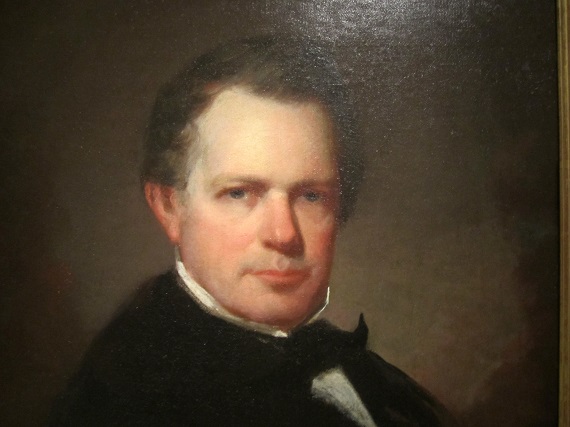
William Gilmore Simms, Part 2
[No American writer, including James Fenimore Cooper, ever had more understanding, knowledge, and sympathy for the Native Americans than did Simms. They appear in many of his works of poetry and fiction.]The Green Corn Dance
Come hither, hither, old and young–the gentle and the strong,
And gather in the green corn dance, and mingle with the song–
The summer comes, the summer cheers, and with a spirit gay,
We bless the smiling boon she bears, and thus her gifts repay.
Eagle from the mountain,
Proudly descend!
Young dove from the fountain,
Hitherward bend-
Bright eye of the bower—
Bird, and bud, and flower,–
Come–while beneath the summer’s sunny glance,
The green leaf peeps from earth, and mingle in the dance.
Not now reluctant do we come to gladden in the boon, The gentle summer brings us now, so lavishly and soon- From every distant village, and from deep secluded glen,
They gather to the green corn dance, bright maids and warrior men.
Of the grave, the gravest,
Smiling, now come-
Of the brave, the bravest
Give the brave room.
Loftiest in station, Sweetest of the nation,
Come–while beneath the summer’s sunny glance,
The green blade peeps from earth, and mingle in the dance.
Now give the choral song and shout, and let the green woods ring, And we will make a merry rout to usher in the spring–
Sing high, and while the happy mass in many a ring goes round, The birds shall cheer, the woods shall hear, and all the hills resound.
Fathers, who have taught us
Ably our toil,
For the blessing brought us,
Share with us the spoil.
Spirit-God above us,
Deign thou still to love us,
While long beneath the summer’s sunny glance,
We see the green corn spring from earth, and gather in the dance.
*
The Decay of a People
This the true sign of ruin to a race—
It undertakes no march, and, day by day
Drowses in camp, or, with the laggard’s pace,
Walks sentry o’er possessions that decay;
Destined, with sensible waste, to fleet away;—
For the first secret of continued power
Is the continued conquest;—all our sway
Hath surety in the uses of the hour;
If that we waste, in vain wall’d town and lofty tower!
*
Sonnet—The Age of Gold
These times deserve no song—they but deride
The poet’s holy craft,–nor his alone;
Methinks as little courtesy is shown
To what was chivalry in days of pride:
Honor but meets with mock:–the worldling shakes
His money-bags, and cries—“My strength is here;
O’erthrows my enemy, his empire takes,
And makes the ally serve, the alien fear!”
Is love the object? Cash is conqueror,–
Wins hearts as soon as empires—puts his foot
Upon the best affections, and will spur
His way to eloquence, when Faith stands mute;
And for Religion,–can we hope for her,
When love and valor serve the same poor brute!
*
Sonnet—Popular Misdirection
Would we recall our virtues and our peace?
The ancient teraphim we must restore;
Bring back the household gods we loved of yore,
And bid our yearning for strange idols cease.
Our worship still is in the public way,–
Our altars are the market-place;–our prayer
Strives for meet welcome in our neighbor’s ear,
And heaven affects us little while we pray.
We do not call on God, but man, to hear;–
Nor even on his affections;–we have lost
The sweet humility of our home desires,
And flaunt in foreign fashions at rare cost;
Nor God our souls, nor man our hearts inspires,
Nor aught that should to God or man be dear.
*





